Organized by Chinese University of Hong Kong, Nature Biomedical Engineering, Nature, Nature Nanotechnology and Nature Materials.
The Nature conference on ‘Translational Biomaterials’ will bring together leading international scientists to explore the application of biomaterials in drug delivery and personalised therapy, tissue engineering and repair, as well as diagnostics and sensing. The scientific talks – over three days – will be relevant to researchers focused on a range of therapeutic areas and target organs. Designed to foster dialogue between researchers with both fundamental and applied areas of expertise, this conference aims to address the gap between biomaterials research and the translation of these materials into clinical use.
Event details
Speakers
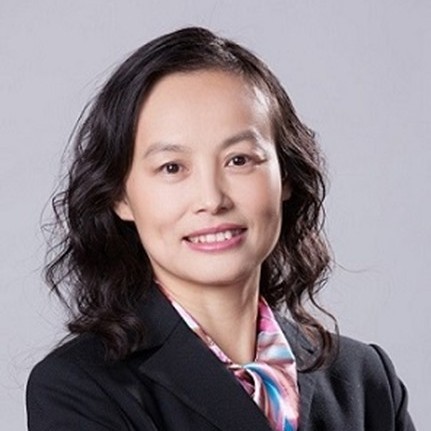
Chunying Chen
National Center for Nanoscience and Technology, China
Prof. Chunying Chen, Academician of Chinese Academy of Sciences and TWAS Member, New Cornerstone Investigator, Professor in National Center for Nanoscience and Technology, and Director of Suzhou Institute of Nano-Tech and Nano-Bionics, Chinese Academy of Sciences.
She has long been dedicated to research in analytical chemistry and the chemico-biological effects of nanomaterials in biological systems. Her research focuses on critical challenges regarding structural properties, chemico-biological behaviors, and nano-bio interfacial interactions of medical nanomaterials. Her systematic investigations have led to applications in vaccine adjuvants and drug delivery systems, thereby providing fundamental support for nanobiomedical applications. She has published over 400 peer-reviewed articles including Nature Nanotechnology, Nature Methods, Nature Protocols, Nature Communications, Science Advances, PNAS, JACS and Angew Chem. She has received numerous awards, including the Second Prize of the National Natural Science Award, IUPAC Distinguished Women in Chemistry or Chemical Engineering, TWAS Chemistry Award, RSC Environment Prize, ACS Bioconjugate Chemistry Lectureship award, Chinese Young Female Scientists Award. She is currently an Executive Editor of ACS Nano and editorial board members of several journals. She is Vice President of Chinese Society of Toxicology and the Biophysical Society of China.
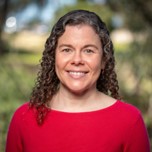
Karen L. Christman
University of California San Diego, USA
Dr. Christman is a Professor in the Shu Chien-Gene Lay Department of Bioengineering, the Associate Dean for Faculty Affairs and Welfare, and holds the Pierre Galletti Endowed Chair for Bioengineering Innovation in the Jacobs School of Engineering at UC San Diego. She received her B.S. in Biomedical Engineering from Northwestern University in 2000 and her Ph.D. from the University of California San Francisco and Berkeley Joint Bioengineering Graduate Group in 2003, where she examined in situ approaches to myocardial tissue engineering. She was also a NIH postdoctoral fellow at the University of California, Los Angeles in the fields of polymer chemistry and nanotechnology. Dr. Christman joined the Department of Bioengineering in 2007 and is Co-Director of the Sanford Advanced Therapy Center in the Sanford Stem Cell Institute at the UC San Diego. Her lab, which is housed in the Sanford Consortium for Regenerative Medicine, focuses on developing novel biomaterials for tissue engineering and regenerative medicine applications, and has a strong translational focus with the main goal of developing minimally invasive therapies for cardiovascular disease and women’s health. Dr. Christman is a fellow of the American Heart Association, the American Institute for Medical and Biological Engineering, the Biomedical Engineering Society, the Tissue Engineering and Regenerative Medicine International Society and the American Association for the Advancement of Science, and has received several awards including the NIH Director’s New Innovator and Transformative Research Awards, the Wallace H. Coulter Foundation Early Career Translational Research Award, the Tissue Engineering and Regenerative Medicine International Society’s Young Investigator and Senior Scientist Awards, the Society for Biomaterials Clemson Award for Applied Research, and the AIMBE Professional Impact Award. Dr. Christman is also a Senior Member of the National Academy of Inventors and a co-founder of Ventrix, Inc. and Karios Technologies, Inc.
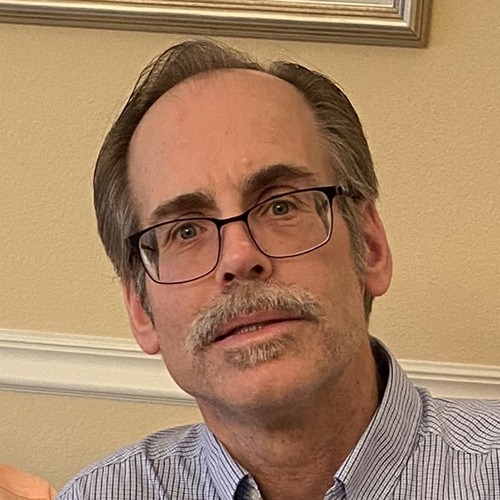
Dennis Discher
University of Pennsylvania, USA
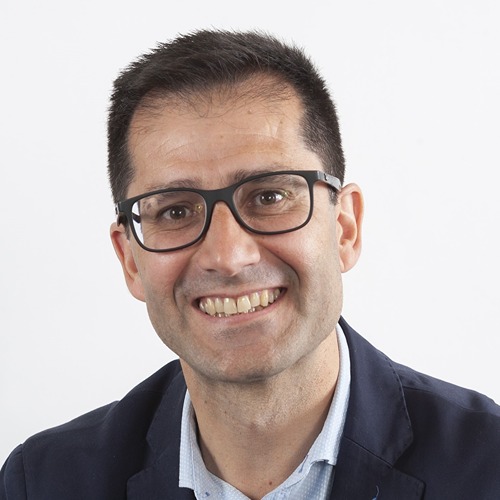
Jose Antonio Garrido
Catalan Institute of Nanoscience and Nanotechnology, Spain
Jose A. Garrido is an ICREA Research Professor at the Catalan Institute of Nanoscience and Nanotechnology (ICN2) in Barcelona, where he leads the Advanced Electronic Materials and Devices group. He received his Master’s and PhD degrees in Telecommunication Engineering from the Polytechnic University of Madrid, and a habilitation degree from the Technical University of Munich. Since 2017 he has served as ICN2’s Vice-director, contributing to its scientific and innovation strategy. His research focuses on the science and technology of 2D materials and their application in bioelectronics and neural interfaces. He leads major national and European research initiatives aimed at developing novel neural interfaces for biomedical applications. He is also co-founder and Chief Scientific Officer of INBRAIN Neuroelectronics, an ICN2 spin-off company developing graphene-based neural devices for medical applications.
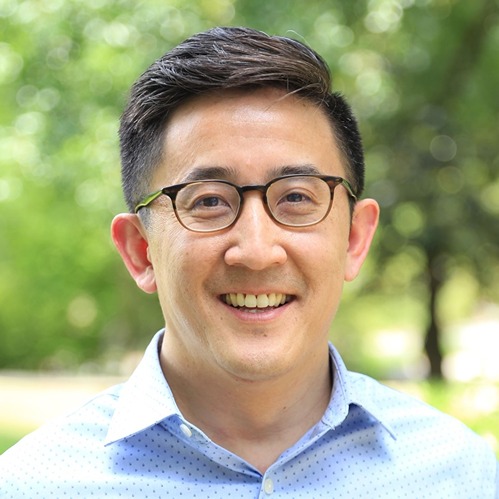
Gabriel A. Kwong
Georgia Tech and Emory School of Medicine, USA
Gabe Kwong is the Robert A. Milton Endowed Chair & Professor of Biomedical Engineering at Georgia Tech and Emory School of Medicine. His research program sits at the intersection of synthetic immunity and medicine, with a particular emphasis on developing biosensors and cell therapies for cancer. A native of the San Francisco Bay Area, Dr. Kwong received his B.S. from UC Berkeley, Ph.D. from Caltech, and completed postdoctoral studies at MIT. He has been recognized with selective distinctions, including the NIH Director’s New Innovator and Pioneer Awards, and currently leads the $49.5 million Cancer and Organ Degradome Atlas (CODA) project – a multi-institutional initiative supported by ARPA-H that aims to transform early cancer detection. Dr. Kwong co-founded 3 biotech companies and holds 40 issued or pending patents.
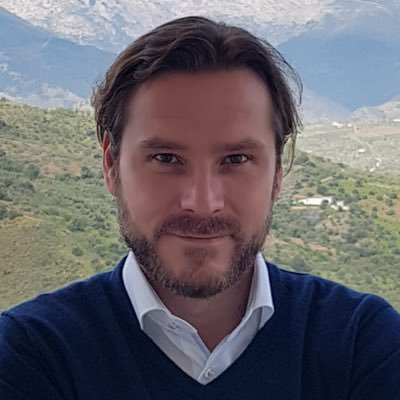
Twan Lammers
RWTH Aachen University Clinic, Germany
Twan Lammers obtained a D.Sc. in Radiation Oncology from Heidelberg University in 2008 and a Ph.D. in Pharmaceutical Technology from Utrecht University in 2009. In the same year, he started the Nanomedicine and Theranostics group at the RWTH Aachen University and the Helmholtz Institute for Biomedical Engineering. In 2014, he was promoted to full professor of medicine at RWTH Aachen University Clinic. His group aims to individualize and improve disease treatment by combining drug targeting with imaging. To this end, image-guided (theranostic) drug delivery systems are being developed, as well as materials and methods to monitor tumor growth, angiogenesis, inflammation, fibrosis and metastasis. Lammers has received multiple scholarships and awards, including ERC starting, consolidator and proof-of-concept grants, the CRS Young Investigator Award, the Adritelf International Award, the Belgian Society for Pharmaceutical Sciences International Award, the JNB Trailblazer Award, and the CRS Exceptional Leadership Award. He has been on the board of directors of CRS for 7 years and served as president in 2023-2024. In addition, has been on the council of ESMI for 10 years and currently serves as secretary. Lammers has published over 300 papers, with over 35000 citations and an h-index of 96. He is a member of the editorial board of 10 journals, and acts as associate editor for JCR, DDTR and MIB. Since 2019, he has been included in the Clarivate Analytics list of Highly Cited Researchers.
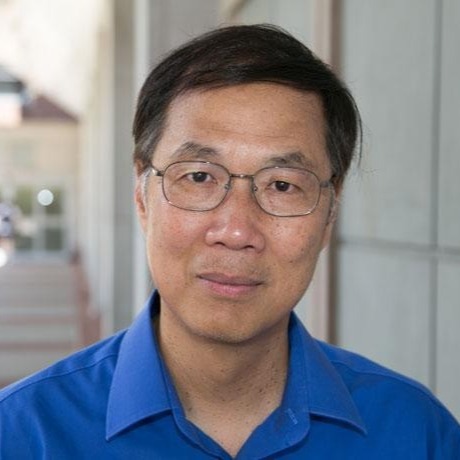
Kam Leong
Columbia University, USA
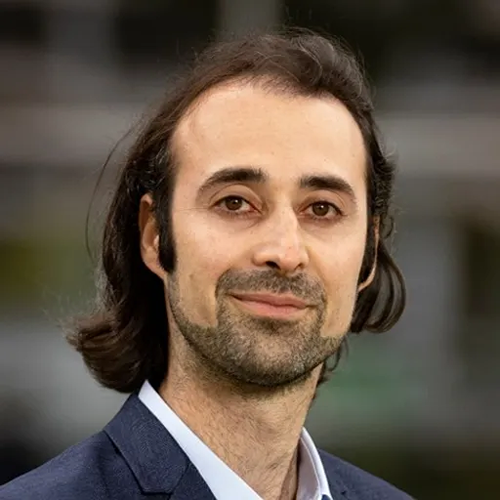
Riccardo Levato
University Medical Center Utrecht, The Netherlands
Riccardo Levato is Associate Professor at Utrecht University and at the University Medical Center Utrecht (The Netherlands), where he is principal investigator at the Living Matter Engineering and Biofabrication laboratory. His research focuses on developing lab-made tissues and designer organoids for personalized therapies and regenerative medicine, and as advanced in vitro models for drug discovery. To achieve this goal, with his team he develops novel additive manufacturing and bioprinting technologies, particularly light-based printing techniques, in combination with smart cell-instructive biomaterials, and synthetic biology and cell engineering strategies. Key applications include pancreas bioprinting for diabetes research, liver biofabrication and vascular tissue engineering. He pioneered volumetric bioprinting, a technique capable to pattern cells and material into centimeter-scale constructs within seconds. To date, he co-authored >90 papers and several patents in the fields of biomaterials and additive manufacturing, and supervised 22 PhD students and 6 postdocs. He is a European Research Council laureate, and received several awards, including the Mid Career award from the International Society for Biofabrication, the Jean Leray and Robert Brown awards from the European Society for Biomaterials and from the Tissue Engineering an Regenerative Medicine International Society. Riccardo is also member of the Young Academy of Europe, and he serves on the Board of Directors of the International Society for Biofabrication.
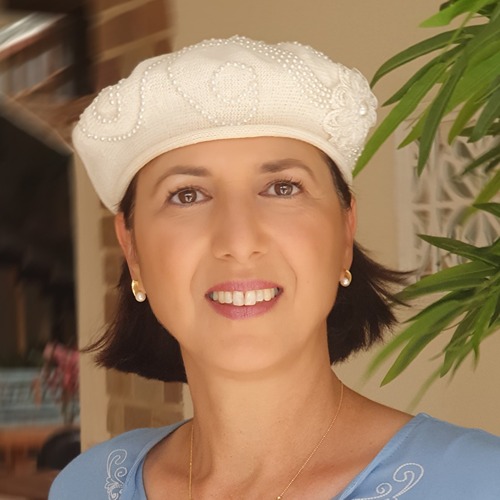
Shulamit Levenberg
Technion - Israel Institute of Technology, Israel
Shulamit Levenberg, PhD, is a professor at the Faculty of Biomedical Engineering at the Technion and director of the Technion’s 3D Bioprinting Center. Prof Levenberg conducts interdisciplinary research on tissue regeneration and engineering 3D tissue models. She received numerous awards including the prestigious Krill, Rappaport and Bruno prizes for excellence in scientific research and the Medal of Distinction from the Peres Center for Peace and Innovation. Prof. Levenberg is a member of the American Institute for Medical and Biological Engineering and a fellow of the National Academy of Inventors. She is the former President of the Israel Stem Cell Society and the former Dean of the Technion Faculty of Biomedical Engineering. Prof Levenberg is a co-founder and chief scientific advisor of three start-up companies in the areas of cultured meat, modified exosomes for spinal cord regeneration and nanoliter arrays for rapid antimicrobial susceptibility testing. She received her B. Sc in Biology from the Hebrew University in Jerusalem, Ph.D. in Molecular cell biology from the Weizmann Institute and did her Post doc research on Tissue Engineering with Prof Langer at MIT.
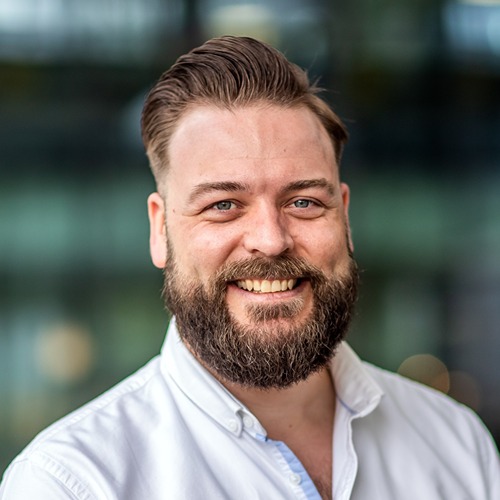
Roy van der Meel
Eindhoven University of Technology, The Netherlands
Roy van der Meel is a biomedical engineer specialized in nanomedicine and RNA therapeutics. After obtaining a PhD from Utrecht University, he moved to Pieter Cullis’ lab at the University of British Columbia where he gained extensive experience with lipid nanoparticle technology. In 2019, Roy was recruited to Eindhoven University of Technology by Willem Mulder, where he is currently appointed Associate Professor in the Precision Medicine group.
Roy’s research is supported by a Dutch Research Council (NWO) Vidi Grant and focuses on engineering RNA-based nanomedicines to precisely regulate immune cell function, aiming to treat diseases like cancer and autoimmune disorders. He has co-authored over 60 publications in journals including Nature Nanotechnology, Nature Biomedical Engineering, Journal of Controlled Release, and ACS Nano, and he was awarded the Controlled Release Society Young Investigator Award in 2024.
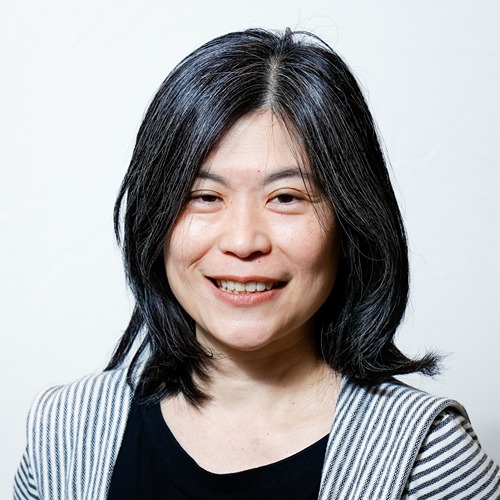
Suzie Pun
University of Washington, USA
Suzie H. Pun is the Washington Research Foundation Professor of Bioengineering, Director for the Molecular Engineering and Sciences Institute, and Associate Director of the Resuscitation Engineering Science Unit (RESCU) at University of Washington. She is a fellow of the U.S. National Academy of Inventors (NAI) and American Institute of Medical and Biological Engineering (AIMBE), and has been recognized with MIT Technology Review’s “Top 100 Young Innovators” designation, the Presidential Early Career Award for Scientists and Engineers, and as an AAAS-Lemelson Invention Ambassador. She was also recognized with the University of Washington’s Marsha Landolt Distinguished Graduate Mentor Award for her dedicated mentoring of students. She currently serves as an Associate Editor for ACS Biomaterials Science and Engineering and on the Science Board of Reviewing Editors.
Suzie Pun received her B.S. in Chemical Engineering from Stanford University and her Ph.D. in Chemical Engineering from the California Institute of Technology. She also worked as a senior scientist at Insert Therapeutics/Calando Pharmaceuticals developing polymeric drug delivery systems before joining the Department of Bioengineering at University of Washington. Her current work focuses on biomaterial applications in drug delivery, trauma medicine and cell therapy.
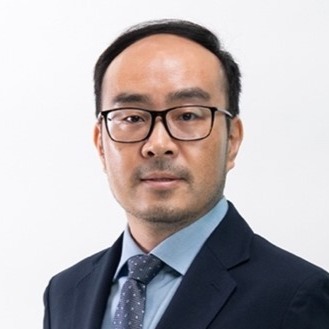
Kanyi Pu
Nanyang Technological University, Singapore
Prof. Kanyi Pu is a President’s Chair Professor at the School of Chemistry, Chemical Engineering and Biotechnology (CCEB) and Lee Kong Chian School of Medicine at Nanyang Technological University (NTU). He also serves as Associate Dean for Research at the College of Engineering and is an Executive Editor of the Journal of the American Chemical Society. With a h-index of 125 and over 40,000 citations, he has been acknowledged as one of the world's most influential researchers by Web of Science, and received esteemed awards, including the Singapore National Research Foundation (NRF) Investigatorship and the Biomaterials Science Lectureship Award. He also acts as an editorial advisory board member for over 18 renowned journals, including Advanced Materials, Chemical Society Reviews, Advanced Functional Materials, Biomaterials, Small, and Bioconjugate Chemistry.
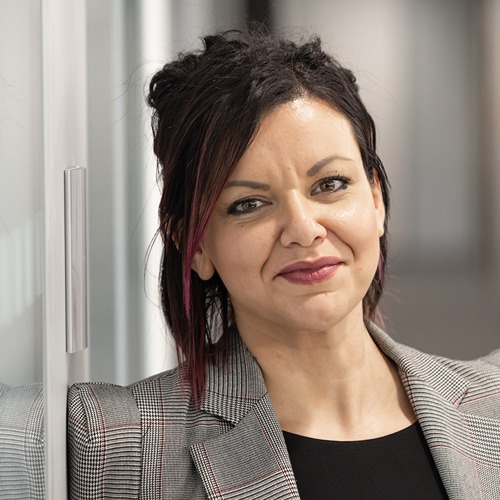
Francesca Santoro
RWTH Aachen and Forschungszentrum Juelich, Germany
Francesca Santoro, born in Naples in 1986, is a biomedical engineer specialed in neuroelectronics. She earned her Bachelor's and Master's degrees in Biomedical Engineering at the University of Naples Federico II, followed by a PhD from RWTH Aachen and Forschungszentrum Juelich in 2014. After a postdoctoral fellowship at Stanford University, she founded the Tissue Electronics Lab at the Istituto Italiano di Tecnologia. Currently, she is Full Professor and Head of the Neuroelectronic Interfaces Lab at RWTH Aachen and Forschungszentrum Juelich.
Her awards include the MIT Technology Review Under 35 Europe and Italy, an ERC Starting Grant, the Falling Walls Breakthrough Award, and early career recognition from the German National Academy of Sciences Leopoldina. She has published over 80 peer-reviewed articles and delivered more than 60 talks at major international conferences.
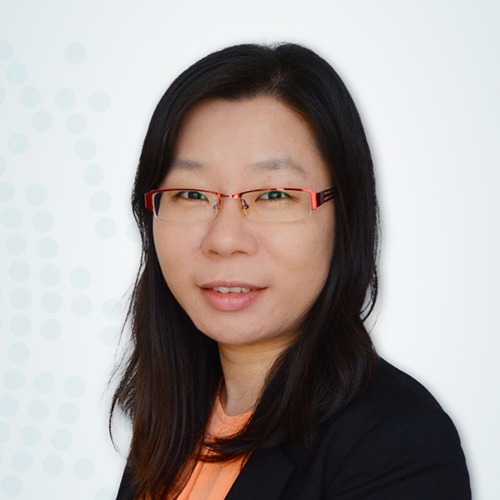
Huilin Shao
National University of Singapore, Singapore
Dr. Huilin Shao is Dean’s Chair Associate Professor, Department of Biomedical Engineering, and Principal Investigator, Institute for Health Innovation & Technology (iHealthtech), National University of Singapore. Dr. Shao received her BA from Cornell University, with a double major in Biological Sciences and in Physics. She completed her dual PhD (Biophysics) at Harvard University and PhD (Medical Engineering) from Harvard-MIT Health Sciences and Technology (HST). Her research focuses on developing integrated nanotechnology platforms for molecular analyses of novel biomarkers. She has pioneered multiple technologies to advance molecular diagnostics. Her work has been published in top journals such as Nature Biotechnology, Nature Nanotechnology, Nature Medicine, Nature Biomedical Engineering, Nature Communications and highlighted in major reviews and popular news media. In recognition of her achievement, Dr. Shao has received multiple awards, including James Mills Pierce Award, A*STAR Independent Fellowship, NUS Early Career Research Award, the L’Oreal For Women in Science National Fellowship, Springer-Nature MINE Young Scientist Award, and Singapore Presidential Young Scientist Award.
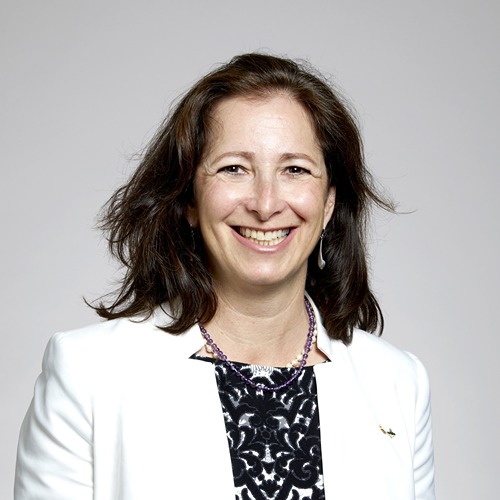
Molly Shoichet
University of Toronto, Canada
Professor Molly Shoichet is University Professor, a distinction held by less than 2% of the faculty. She is the inaugural Pamela & Paul Austin Chair in Precision and Regenerative Medicine, and Scientific Director of Precision Medicine (PRiME) and BioHubNet at the University of Toronto. Shoichet served as Ontario’s first Chief Scientist in 2018 where she worked to enhance the culture of science. Dr. Shoichet has published over 850 papers, patents and abstracts and has given nearly 600 lectures worldwide. She currently leads a laboratory of 30 and has graduated 305 researchers. Her research is focused on drug and cell delivery strategies in the central nervous system (brain, spinal cord, retina), 3D hydrogel culture systems to model cancer and colloidal drug aggregates. Dr. Shoichet co-founded four spin-off companies, is actively engaged in translational research and science outreach. Dr. Shoichet is the recipient of many prestigious distinctions and the first (and until recently the only) person to be inducted into all three of Canada’s National Academies of Science of the Royal Society of Canada, Engineering and Health Sciences. Professor Shoichet is an Officer of the Order of Canada and holds the Order of Ontario. Dr. Shoichet is the L’Oreal-UNESCO For Women in Science Laureate for North America, 2015, Foreign Member of the US National Academy of Engineering, Fellow of the US National Academy of Inventors, recipient of the Killam Prize in Engineering, 2017 and Fellow of the Royal Society (UK). Dr. Shoichet is the NSERC Herzberg Gold Medal awardee, 2020 (the highest award in science/engineering in Canada) and recipient of the Margolese National Brain Disorders Prize. Dr. Shoichet received her SB from the Massachusetts Institute of Technology (1987) and her PhD from the University of Massachusetts, Amherst in Polymer Science and Engineering (1992).
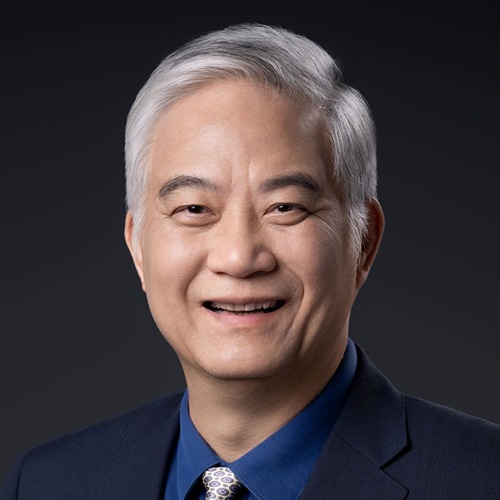
Ben Zhong Tang
The Chinese University of Hong Kong, Shenzhen, China
Prof. Tang received his B.S. and PhD degrees from South China University of Technology and Kyoto University in 1982 and 1988, respectively. He conducted postdoctoral research at The University of Toronto from 1989 to 1994. He joined the Hong Kong University of Science & Technology in 1994 and was promoted to Chair Professor in 2008. He was elected to the Chinese Academy of Sciences in 2009 and the World Academy of Sciences for the Advancement of Science in Developing Countries in 2020. In 2021, he joined The Chinese University of Hong Kong, Shenzhen, as Dean of School of Science and Engineering, with a concurrent appointment of X.Q. Deng Presidential Chair Professor.
Prof. Tang has published >2,600 scientific papers, which have been cited >234,000 times. His h-index is 211. He has delivered >500 invited talks at international conferences and has been granted >100 patents. He is currently serving as Editor-in-Chief of Aggregate published by Wiley, and is sitting in the editorial boards of >20 scientific journals.
Prof. Tang is mainly engaged in the study of materials science, macromolecular chemistry and biomedical theranostics. He coined the concept of aggregation-induced emission (AIE), and his labs are spearheading the AIE research in the world.
Prof. Tang has been listed as a Highly Cited Researcher in both areas of Chemistry and Materials Science since 2014. He received a series of awards, scholarships and honors, e.g., Croucher Senior Research Fellowship Award in 2007 and the Chinese Chemical Society's Wang Baoren Award for Basic Research in Polymer Science. In 2014, he was awarded the 27th Khwarizmi International Science Award. In 2015, he was honored as the Honorary Citizen of Guangzhou. In 2017, Prof. Tang was awarded the National Natural Science Award (1st Class) , along with the Scientific and Technological Progress Award (Ho Leung Ho Lee Foundation). In 2020, he received the MCF Best Review Award. In 2021, he was honored with the Nano Today International Science Award and several editorial commendations, including the Outstanding Reviewer award from Materials Chemistry Frontiers. In 2022, he received the NPY Webinar Certificate. In 2023, he received the Biomaterials Global Impact Award, the NJU-ACS Certificate, and the designation of World Leading AI Scientist by the International Artificial Intelligence Industry Alliance..and CCS–SINOPEC Award (the Chinese Chemical Society) in 2024.
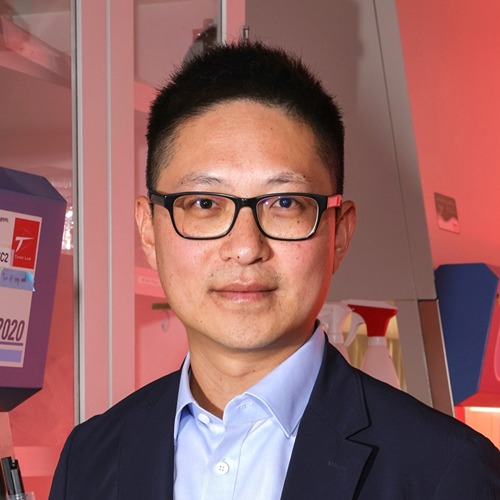
Li Tang
EPFL, Switzerland
Li Tang received his B.S. in Chemistry from Peking University, China, in 2007, and Ph.D. in Materials Science and Engineering from University of Illinois at Urbana-Champaign, USA, in 2012, under the supervision of Prof. Jianjun Cheng. He was a CRI Irvington Postdoctoral Fellow in the laboratory of Prof. Darrell Irvine at Massachusetts Institute of Technology during 2013-2016. He joined the faculty of Institute of Bioengineering, and Institute of Materials Science & Engineering, at École polytechnique fédérale de Lausanne (EPFL), Switzerland, as a Tenure-Track Assistant Professor in 2016, and promoted to Associate Professor with tenure in 2022. He is also the Vice Dean for Innovation, and Director of Innovate4Life program at School of Life Sciences, EPFL.
His research focuses on developing multidimensional immunoengineering approaches for enhanced cancer immunotherapies. Dr. Tang is the recipient of Friedrich Miescher Award (2025) from Life Sciences Switzerland (LS2), Leenaards Prize for Translational Medical Research (2025), Biomaterials Science Lectureship (2025), CAB Mid-Career Investigator Award (2024), Biomaterials Award for Young Investigators (2024), Cancer Research Institute CLIP Award (2021), Anna Fuller Award (2021 and 2022), European Research Council (ERC) Starting Grant Award (2018), and named in the MIT Technology Review’s "Top 35 Innovators under Age 35" list of China region (2020).
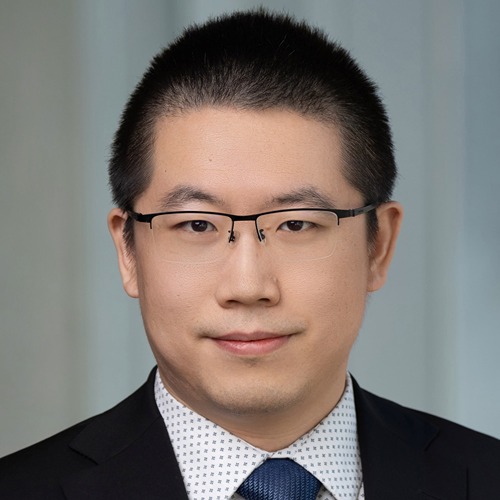
Sihong Wang
The University of Chicago, USA
Sihong Wang is an Associate Professor in the Pritzker School of Molecular Engineering at the University of Chicago, USA. He received his Ph.D. degree in Materials Science and Engineering from the Georgia Institute of Technology in 2014, and his Bachelor’s degree from Tsinghua University in 2009. From 2015 to 2018, he was a postdoctoral fellow in Chemical Engineering at Stanford University. He has published over 80 papers in numerous high-impact journals, including Science, Nature, Nature Materials, Nature Electronics, Nature Sustainability, Matter, Nature Communications, Science Advances, etc. His research group currently focuses on soft polymeric bioelectronic materials and devices as the new generation of technology for biomedical studies and therapeutics. As of July 2025, his research has been cited more than 30,600 times and he has an H-index of 668. He was recognized as a Highly Cited Researcher by Clarivate Analytics from 2020 to 2024, and was awarded the NIH Director’s New Innovator Award, NSF CAREER Award, Office of Naval Research (ONR) Young Investigator Award, MIT Technology Review 35 Innovators Under 35 (TR35 Global List), Chan Zuckerberg Biohub Investigator Award, Advanced Materials Rising Star Award, ACS PMSE Early-Stage Investigator Award, iCANX Young Scientist Award, MRS Graduate Student Award, Chinese Government Award for Outstanding Students Abroad, Top 10 Breakthroughs of 2012 by Physics World, etc.
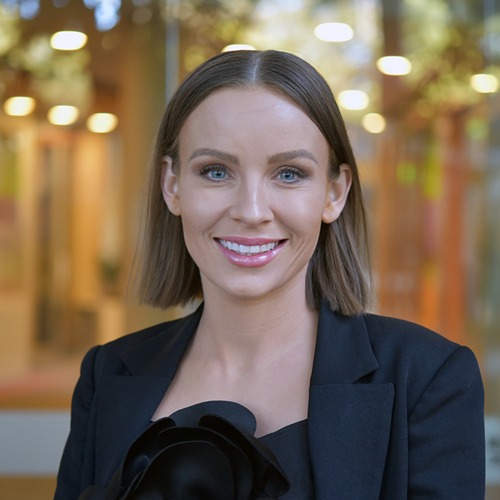
Joy Wolfram
The University of Queensland, Australia
Associate Professor Joy Wolfram leads an extracellular vesicle research program (A$260M as chief investigator), which has amassed over 19 500 citations. Her team’s mission is to translate next-generation nanomedicine directly to the clinic, transforming the treatment of life-threatening diseases, improving patient outcomes, and extending healthy lifespans. She holds joint appointments in the School of Chemical Engineering and the Australian Institute for Bioengineering and Nanotechnology at The University of Queensland (ranked 41st globally by U.S. News & World Report) and cofounded the UQ Centre for Extracellular Vesicle Nanomedicine, the largest centre of its kind in Australia. In the past five years, Wolfram has ranked in the top 1 percent of researchers in several distinct fields: cancer, extracellular vesicles, drug delivery, biology/biochemistry, and pharmacology/toxicology (Essential Science Indicators SciVal and ScholarGPS). Wolfram’s interdisciplinary team includes clinicians, and she holds an affiliate position at Houston Methodist Hospital (ranked top 20 in the U.S. by U.S. News & World Report). Wolfram is a passionate science communicator who formerly chaired an education and outreach working group at the National Institutes of Health (U.S.), served as associate program director of the PhD Program in Regenerative Sciences at Mayo Clinic (ranked 1st globally by Newsweek), and shares her work with broader audiences as a TED speaker.
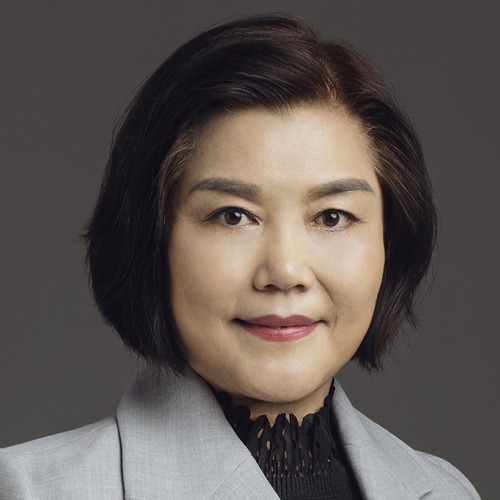
Xiyun Yan
Institute of Biophysics, Chinese Academy of Sciences (IBP), China
Prof. Dr. Xiyun Yan
CAS Engineering Laboratory for Nanozyme, Institute of Biophysics, Chinese Academy of Sciences
Member of the Chinese Academy of Sciences
Fellow of the World Academy of Sciences for the Advancement of Science in Developing Countries
Biography
|
1983 – 1991 |
Assistant and Associate, Institute of Biophysics, Chinese Academy of Sciences |
|
1989 – 1992 |
M.D., Microbiology and Immunology, Heidelberg University, Germany |
|
1994 – 1996 |
Post Doc, Immunology, Memorial Sloan-Kettering Cancer Center, U.S.A |
|
1992 – 2007 |
Associate Researcher, Principal Investigator, Institute of Microbiology, Chinese Academy of Sciences |
|
2007 – |
Principal Investigator, Institute of Biophysics, Chinese Academy of Sciences |
|
2006 – 2016 |
Vice President & Secretary-General of Chinese Biophysical Society |
|
2015 – 2018 |
President of Asian Biophysics Association |
|
2015 – |
Member of Chinese Academy of Sciences |
|
2024 – |
Fellow of the World Academy of Sciences for the Advancement of Science in Developing Countries |
Research Interests and Achievements
Dr. Yan's research group focuses on precision cancer treatment, with emphasis on studies related to selecting new targets for tumors, finding new material for drug delivery and developing new strategies to combat cancer. She introduced the concept of "nanozyme" and used nano-materials as enzyme mimics to create new methods for tumor diagnosis and nanozyme-strip for rapid local detection of infectious diseases such as Ebola virus. She has also established the standard for determining nanozyme catalytic activity, founded Nanozyme Academic Subgroup of Biophysical Society of China and developed world's first nanozyme product. Her discovery of nanozymes changed the general view that nanoparticles are biochemically inert and opened many new applications for nanozymes as enzyme mimics in various major fields, which include medicine, agriculture, food production, biotechnology, and environmental protection. Dr. Yan's original research, published in 2007, has received widespread recognition, accumulating over 6,900 citations. Her work has paved the way for the emergence of the interdisciplinary field of nanozymes, bridging the disciplines of enzymology, chemistry, materials science, biology, and medicine. Since then, more than 1,500 nanozymes have been reported by 500 laboratories across 55 countries. The research on nanozymes has expanded from laboratory settings to clinical and agricultural applications. The significance of nanozymes has been acknowledged by Clarivate, which designated it as a "key hot frontier" in 2022. Additionally, the International Union of Pure and Applied Chemistry (IUPAC) recognized Nanozyme as one of the top ten new technologies in 2022, and the World Economic Forum listed Nanozyme among the Top 10 Emerging Technologies of 2025.
Dr. Yan's innovative contributions in the discovery and application of nanozymes have earned her a position among the top 2% of highly cited scientists worldwide in 2022, 2023 and 2024. In 2012, she was awarded the second prize of the State Natural Science Award and received the Atlas Award, 2015.
Selected Publications
[1]. Gao LZ, et al. & Yan XY. Intrinsic peroxidase-like activity of ferromagnetic nanoparticles. Nat. Nanotechnol. 2007, 2:577-583.
[2]. Fan KL, et al. & Yan XY. Magnetoferritin nanoparticles for targeting and visualizing tumour tissues. Nat. Nanotechnol. 2012, 7:459-464.
[3]. Jiang B, et al. & Yan XY. Standardized assays for determining the catalytic activity and kinetics of peroxidase-like nanozymes. Nat. Protoc. 2018, 13:1506-1520.
[4]. Fan KL, et al. & Yan XY. In vivo guiding nitrogen-doped carbon nanozyme for tumor catalytic therapy. Nat. Commun. 2018, 9:1440.
[4]. Yan XY (2020). Nanozymology. Springer Nature. Singapore
[6]. Ji SF, et al. & Yan XY, Li YD. Matching the kinetics of natural enzymes with a single-atom iron nanozyme. Nat. Catal. 2021, 4: 407-417.
[7]. Zhu MS, et al. & Yan XY, Huang XL. Machine-learning-assisted single-vessel analysis of nanoparticle permeability in tumour vasculatures. Nat. Nanotechnol. 2023, 18:657-666.
[8]. Meng XQ, et al. & Yan XY, Fan KL. Ultrasmall metal alloy nanozymes mimicking neutrophil enzymatic cascades for tumor catalytic therapy. Nat. Commun. 2024, 15:1626.
[9]. Ma L, et al. & Yan XY, Fan KL. A natural biogenic nanozyme for scavenging superoxide radicals. Nat. Commun. 2024,15: 233.
[10]. Zhang RF, et al. & Fan KL, Gao LZ, Yan XY. Designing nanozymes for in vivo applications. Nat. Rev. Bioeng. 2024, 2(10): 849-868.
[11]. Zhang RF, et al. & Yan XY, Fan KL, Hypoxia-tropic delivery of nanozymes targeting transferrin receptor 1 for nasopharyngeal carcinoma radiotherapy sensitization. Nat. Commun. 2025, 16(1): 890.
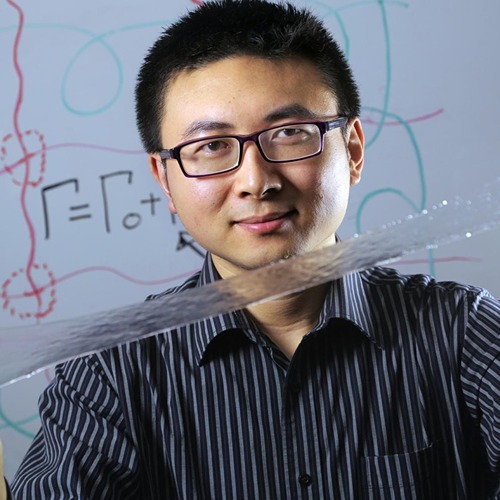
Xuanhe Zhao
Massachusetts Institute of Technology, USA
Xuanhe Zhao is the Uncas and Helen Whitaker Professor at MIT. The mission of Zhao Lab is to advance science and technology between humans and machines to address grand societal challenges in health and sustainability. Dr. Zhao is a Humboldt Research Award winner and a fellow of American Institute for Medical and Biological Engineering (AIMBE). He co-founded three startup companies – SanaHeal, Magnendo, and Sonologi – based on technologies developed in Zhao Lab. Bioadhesive ultrasound, based on Zhao Lab’s work published in Science, was named one of TIME Magazine's Best Inventions of the year in 2022. SanaHeal Inc., based on Zhao Lab’s work published in Nature, was awarded the 2023 Nature Spinoff Prize. Over 15 patents from Zhao Lab have been licensed by companies and have contributed to FDA-approved and widely used medical devices globally.
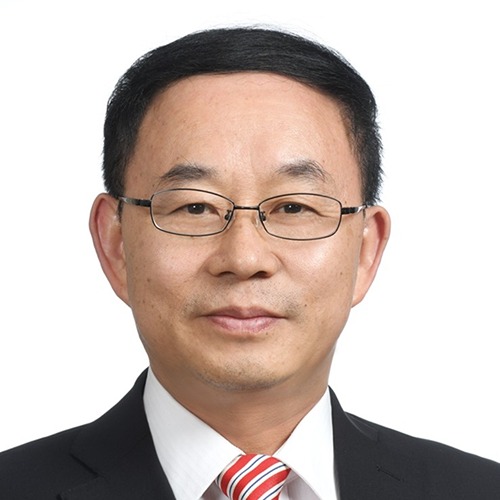
Yuliang Zhao
National Center for Nanosciences and Technology of China, CAS, China
Professor of Chemistry, Chinese Academy of Sciences (CAS). He served as the Director of National Center for Nanosciences and Technology, China (2008-2023), the Academic Director of Suzhou Institute of Nano-tech and Nano-bionics, CAS (2009-2023). He graduated from Sichuan Univ. in 1985, and received PhD at Tokyo Metropolitan Univ. in 1999. He moved to Chinese Academy of Sciences from RIKEN in 2001. He and colleagues in Japan discovered the Element 113 (Nh) which is first element that has been discovered in Asia and filled in the Element Periodic Table.
Dr Zhao is a pioneer for initiating the study on biological/toxicological effects of nanomaterials in 2001 and a trailblazing pioneer on the research of in vivo drug delivery using nanorobots. He is an international leader who has made pioneering and seminal contributions to the field of nanotoxicology by developing innovative techniques, tools, methodologies, standards, regulations to discover toxicological effects of nanomaterials and biomedical activities of nanoparticles for drug delivery, understanding their mechanisms of nanotoxicity in clinical applications. Dr Zhao`s basic research work has published ~660 peer-review scientific papers with citations ~90,000 times (H-index ~150); edited and published 13 books (3 books in English and 10 in Chinese), with his earliest efforts on systematizing the knowledge for nano-toxicology in category of nanomaterials, making significant contribution to building the knowledge framework of nano-safety.
In applications, Dr Zhao has been authorized 131 patents by China, USA, EU and Japan, and more than 20 patents have been translated to industries. The work of his team has led to an ISO standard being adapted by ISO/IEC 168 countries. etc. He is also worldwide leader in forging a comprehensive knowledge framework in nanotoxicology, enabling the scientific and regulatory landscape for nanotechnology products of biomedical uses in clinics. These greatly promoted the clinical translations of new bio-nanomaterials and later became the key of establishing the regulatory guidelines of nano-drug administration, for example, supporting the fast approval of Covid-19 mRNA Vaccine for clinical uses worldwide.



